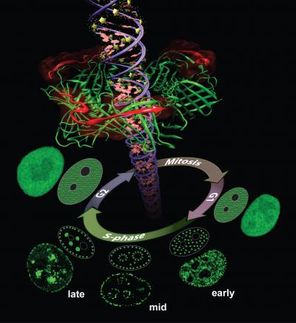Agilent Technologies and Agendia Sign Agreement on Molecular Cancer Diagnostics
Agilent Technologies Inc. and Agendia, Inc. today jointly announced an agreement to expand their relationship to include the development of an RNASeq kit version of Agendia’s currently marketed MammaPrint and BluePrint tests.
Agendia’s MammaPrint test provides High-Risk or Low-Risk test results to assess the risk of distant metastasis within five years, in breast cancer patients with Stage I or Stage II disease. Agendia’s BluePrint test builds on the foundational prognostic precision of MammaPrint, to classify the breast cancer into one of four molecular subtypes. These results help to predict clinical outcomes in women with early-stage breast cancer.
Using Agilent’s SureSelect target enrichment system, the new RNAseq kit will enable Agendia to develop and perform the MammaPrint and BluePrint tests, as next-generation sequencing assays. This capability will allow the tests to be run in decentralized settings that can utilize a larger footprint of next-generation sequencing instruments, thus affording patients global access to these revolutionary tests. The ability to perform these tests at locations closer to the patients, provides greater accessibility and the potential for more cancer patients to get better individualized treatment management. The initial phase of kit development is expected to be completed in 2017, providing early access to limited markets in Europe.
Agilent Technologies is a leading provider of target enrichment for next-generation DNA and RNA sequencing solutions. Target enrichment saves researchers time and resources by enabling them to focus on regions of interest rather than looking at the entire genome. Agendia is a leading molecular diagnostics company that develops and markets FFPE-based genomic diagnostic products. Agendia’s MammaPrint microarray-based diagnostic test is currently the only FDA-cleared breast cancer recurrence test intended for use in breast cancer patients of all ages.
“We have had a long-term collaboration with Agilent and are excited to further our relationship,” said Mark Straley, chief executive officer of Agendia. “The addition of Agilent’s RNA next-generation sequencing technologies to our current microarray platform will allow us to penetrate international markets where decentralized kit offerings are preferred, and help us to achieve our core mission of providing all women access to advanced cancer diagnostics.”
"We are excited to partner once again with Agendia" said Jacob Thaysen, president of Agilent's Diagnostics and Genomics Group. “Both companies share a common goal of fighting cancer and this agreement leverages Agendia’s expertise in molecular cancer diagnostics and Agilent’s leading NGS target enrichment technologies to ultimately enable the best treatment decision to be made for each individual.”
Most read news
Topics
Organizations
Other news from the department science

Get the analytics and lab tech industry in your inbox
By submitting this form you agree that LUMITOS AG will send you the newsletter(s) selected above by email. Your data will not be passed on to third parties. Your data will be stored and processed in accordance with our data protection regulations. LUMITOS may contact you by email for the purpose of advertising or market and opinion surveys. You can revoke your consent at any time without giving reasons to LUMITOS AG, Ernst-Augustin-Str. 2, 12489 Berlin, Germany or by e-mail at revoke@lumitos.com with effect for the future. In addition, each email contains a link to unsubscribe from the corresponding newsletter.























































